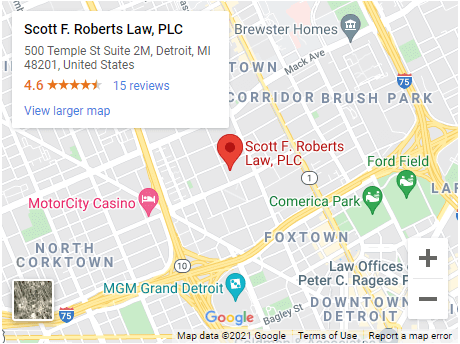In the past two years, Michigan’s Marijuana Regulatory Agency and its predecessor has licensed numerous marijuana facilities under the Medical Marihuana Facilities Licensing Act, or MMFLA. Under the MMFLA, a licensed dispensary—often referred to as a “provisioning center”—can only sell to Michigan medical marijuana card holders. Similarly, a licensed grower or processor can only sell to an MMFLA licensed entity. However, with Michigan voters passing the Michigan Regulation and Taxation of Marihuana Act, or MRTMA, in November 2018, Michigan now allows the sale of marijuana to any adult aged 21 and up and is currently licensing marijuana facilities under the MRTMA.
The passage and rollout of the MRTMA has many Michigan MMFLA licensees wondering how they can transition to the recreational marijuana market. First off, it should be noted that for most MRTMA licenses, the owners first have to have a MMFLA license. There are exceptions to this requirement, however, the most important ones being the MRTMA microbusiness license, which allows for small scale vertical integration, and the Class A Grower license, which allows for the growing of 100 plants under the MRTMA. This rule also doesn’t apply to Designated Consumption Area licenses and event licenses.
Making the Transition
Putting these exceptions aside, let’s assume that you have an operating MMFLA Class A, B or C growers license, processor license, provisioning center license, safety testing license or secure transport license. How and when does your MMFLA licensee transition to an equivalent MRTMA license?
Until December 6th, 2021, only those who first obtain an MMFLA license are eligible for an MRTMA license, except as noted above. In this way, the MMFLA acts as a sort of “gatekeeper” to most of Michigan’s recreational cannabis licenses.
Now, assuming you are an operating MMFLA licensee, and your municipality has opted in under the MRTMA, or in some cases failed to opt out (more on this later), your company would be eligible to apply for an MRTMA license. The MRTMA application process is somewhat similar to the MMFLA, and MRTMA license applications for MMFLA licensees are expeditated and can pass the prequalification step in as little as a week. However, only step one of the application process is expediated, and step 2 remains the same whether the entity already has a medical license or not. Thus, an applicant with an operational medical facility would still need to complete the recreational attestations A through F and submit a social equity plan, though this is a lot easier than some would lead you to believe.
Updated information regarding any change in the entity’s ownership interests, contact information or tax liability must be updated with the MMFLA licensing section prior to applying for a recreational application. This includes bank accounts being opened in the name of the entity and property owned or leased by the entity, even though the MRTMA does not require an entity or its supplemental applicants provide 12 months of financial statements as required under the MMFLA.
Contrary to many of the rumors I’ve heard in the industry, there is no requirement for how long the entity must hold a medical license. For whatever reason, many licensees, and even a few cannabis business attorneys, seem to be under the mistaken belief that you must have held your MMFLA license for at least two years. This is likely an incorrect reading of the MRTMA statutory provision that after two years of the MRTMA program’s implementation, you are no longer required to first obtain a medical marijuana license before obtaining an MRTMA license.
MRTMA Opt-Ins: “If a municipality hasn’t opted out, they still haven’t opted in”
There is one more misconception that may be helpful to address. You may have heard this one before, possibly even from MRA Director Andrew Brisbo himself, and that is the misconception that if a municipality hasn’t “opted out under the MRTMA, they have in effect opted in.” This was a source of confusion among many attorneys, including myself, who read the statute differently than the MRA’s previous interpretation.
However, my firm along with a couple other firms decided to put this statement to the test, and the outcome was what I had long suspected, and even told many guest at my previous speaking engagements. That is, if a municipality hasn’t opted out, that doesn’t necessarily mean you would be able to receive an MRTMA license.
As an example, let’s take the City of Detroit, which failed to opt out by the November 1st, 2019 deadline. The City did eventually opt out about two weeks past this deadline, though in the interim, our firm along with a few others submitted MRTMA licenses to MRA since we were told by MRA on several occasions that would mean our clients were eligible for a state MRTMA license.
In turns out, this was not the case, and there are a couple of reasons why the “if they didn’t opt out, they’ve opted in” argument failed. First, the MRTMA license application requires a municipal certificate of occupancy in order to issue a MRTMA license, and you would be unlikely to get a certificate of occupancy if a municipality hasn’t passed an MRTMA opt in ordinance.
However, let’s assume you are a medical marijuana facility that already has a certificate of occupancy. In fact, our clients in Detroit all had certificates of occupancy and were operating as MMFLA licensed provisioning centers. This leads to the second hurdle, which is that the state will ask the municipality to confirm that the marijuana facility complies with its zoning ordinance.
Here, if a city or township hasn’t passed zoning for recreational marijuana, and has only enacted zoning for medical marijuana or has no marijuana zoning at all, then the municipality will almost certainly tell the MRA that the property does not conform with municipal zoning, and the MRTMA application would be denied. While this certainly begs the question of how a facility could not confirm with zoning if there is no applicable zoning, MRA’s current position is to simply take whatever the municipality says at face value.
While this second reason may be challenged in court or through administrative hearings, it is MRA’s current interpretation of the MRTMA (at the time of this article), and it effectively shuts down the “if you haven’t opted out, you’ve opted in” theory of state licensing. That leaves MMFLA licensees waiting for their municipality to opt in to the MRTMA three options:
(1) lobby municipal officials to opt in,
(2) petition the municipality to bypass the city council or township board (but these petitions cannot enact zoning provisions), or
(3) simply wait and see.
If you have questions on how to transition your MMFLA licensed facility to the MRTMA, contact us today to discuss your options.




